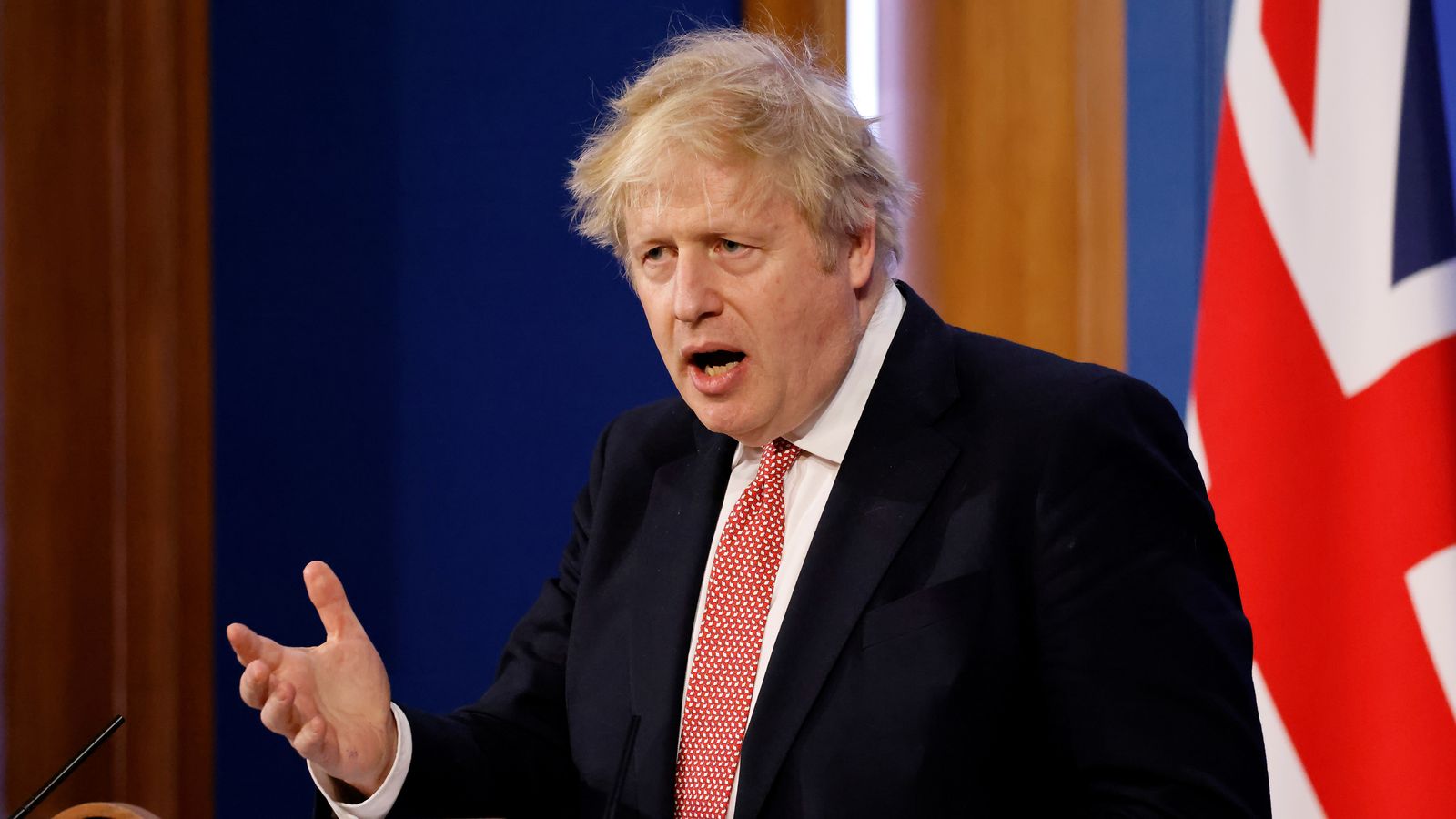Boris Johnson described long COVID as “b*******”, the inquiry into the pandemic in the UK has heard.
A document from October 2020 described the symptoms of the condition, beside which the then prime minister wrote “b*******” and “this is Gulf War Syndrome”.
Mr Johnson repeated similar remarks in a WhatsApp message four months later, the UK COVID-19 Inquiry heard.
In February 2021, Mr Johnson wrote: “Do we really believe in long COVID? Why can’t we hedge it more? I bet it’s complete Gulf War Syndrome stuff.”
Please use Chrome browser for a more accessible video player
Professor Chris Brightling, professor of respiratory medicine, and Dr Rachael Evans, clinical associate professor and honorary consultant respiratory physician, both at the University of Leicester, said they were disappointed the condition was apparently dismissed at such a high level.
Giving evidence on Friday, Prof Brightling said: “I’m deeply saddened and extremely angry at the same time.
“There are people in this room, there are people who are watching who have either suffered with long COVID themselves or their loved ones had long COVID, and I would be surprised if there are people in this room who do not at least know somebody who’s had long COVID.”
COVID inquiry: Boris Johnson’s wife, Carrie, was ‘real person in charge’, says Whitehall chief in WhatsApp message
HS2: Boris Johnson says scrapping Manchester leg would ‘betray’ the North and levelling up
Boris Johnson’s Downing Street decorator addresses ‘missed opportunity’
He went on to question whether Mr Johnson was saying “b******* to the science”, which he said was “clearly wrong because the science was already quite compelling that this was a problem”.
Prof Brightling added: “Is it b******* to the patients because he actually didn’t really feel that they deserved a voice?”
Prof Brightling said the comments and the fact Mr Johnson’s view appeared not to change as the pandemic progressed was “yet another unbelievable thing that happened”.
He added: “We don’t know how much this influenced the activity from government, and what government then did. But you would expect if the prime minister’s view was such it may well have had an influence on other people in government.”
Read more:
Boris Johnson’s wife, Carrie, was ‘real person in charge’
Up to 200,000 to be monitored for COVID this winter
‘Shocking and just beyond disappointing’
Dr Evans said the condition is “a very real phenomenon”.
Asked for her reaction to Mr Johnson’s words, she said: “It’s shocking and just beyond disappointing, and I still feel very emotive when you see it because obviously we’ve got people here, as Chris has said, that are living through this absolutely dreadful illness.”
Be the first to get Breaking News
Install the Sky News app for free
She added: “To see that your own prime minister has written something like that, I just can’t begin to think how people living through it feel.
“And actually, as clinicians and researchers, we were already feeding back very clear descriptions of what this illness looked like, even if we didn’t know exactly what was causing it and all the rest of it. It was a very real and is a very real phenomenon.”
Anthony Metzer KC, speaking on behalf of Long COVID Kids, Long COVID SOS and Long COVID Support, previously told the inquiry Mr Johnson initially “denied the truth” of the suffering of long COVID patients.
He said: “The UK’s senior-most decision-makers were dismissing, diminishing and disbelieving the very existence and risk of long COVID.”
‘PM meetings aren’t working’
The inquiry also released an undated draft report containing responses from over 45 people predominantly working closely in Number 10 and the Cabinet Office who were asked about what problems had occurred and what could be done better.
The document said there were “some universal themes”, including: “PM meetings aren’t working”, “Decisions are never final” and “We have a hundred actions and no plan”.
Staff were also “exhausted and stressed”, the document added. It said: “‘No one listens to anyone else’. Views ignored. Bad behaviour from senior leaders tolerated. Too much politics (small p).”
It also noted: “No 10 always at war with someone. Everyone wants to be in the room with the PM.
“Lots of people (including those who had talked over junior women) mentioned junior women being talked over or ignored.”










